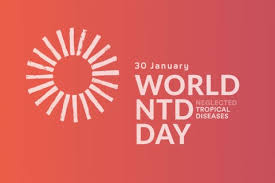Recent data released by the World Health Organization (WHO) has highlighted the urgent need for interventions against Neglected Tropical Diseases (NTDs) in Nigeria, with an estimated 138.9 million individuals requiring assistance.
This revelation underscores the significant health challenges facing the nation and the imperative for concerted efforts to address them.
According to the WHO’s latest epidemiological and programmatic data for 2022, compiled and analyzed in 2023, Nigeria ranks first in the African region and second globally after India in terms of NTD burden.
NTDs encompass a diverse group of conditions of parasitic, bacterial, viral, fungal, and non-communicable origin, affecting millions of Nigerians and perpetuating cycles of poverty and inequity.
The report emphasizes the profound impact of NTDs on communities, hindering children’s access to education and adults’ ability to engage in productive work.
Moreover, individuals affected by disabilities and impairments resulting from NTDs often face stigma and social isolation, further exacerbating their plight.
Key findings from the report indicate that Nigeria remains endemic for several NTDs, despite progress in the elimination of diseases such as dracunculiasis (Guinea-worm disease) in 2013.
The population requiring interventions against NTDs stands at approximately 138.9 million, with specific treatments required for lymphatic filariasis, soil-transmitted helminthiases, and onchocerciasis through mass drug administration.
In response to the NTD crisis, the Federal Government announced plans in 2023 to eradicate these diseases by 2027, demonstrating a commitment to improving public health outcomes nationwide.
Dr. Ibrahima Fall, Director of the WHO Global Neglected Tropical Diseases Programme, emphasized the need for collective action and strategic priorities to address the root causes of NTD transmission and combat inequalities within affected populations.
“With a renewed focus on advocacy, partnership, costing, and accelerated implementation, we must intensify our collective action to address the deep-rooted inequalities that fuel the transmission of NTDs,” Dr. Fall stated.
Do you want to share a story with us? Do you want to advertise with us? Do you need publicity for a product, service, or event? Contact us on WhatsApp +2348183319097 Email: platformtimes@gmail.com
We are committed to impactful investigative journalism for human interest and social justice. Your donation will help us tell more stories. Kindly donate any amount HERE




